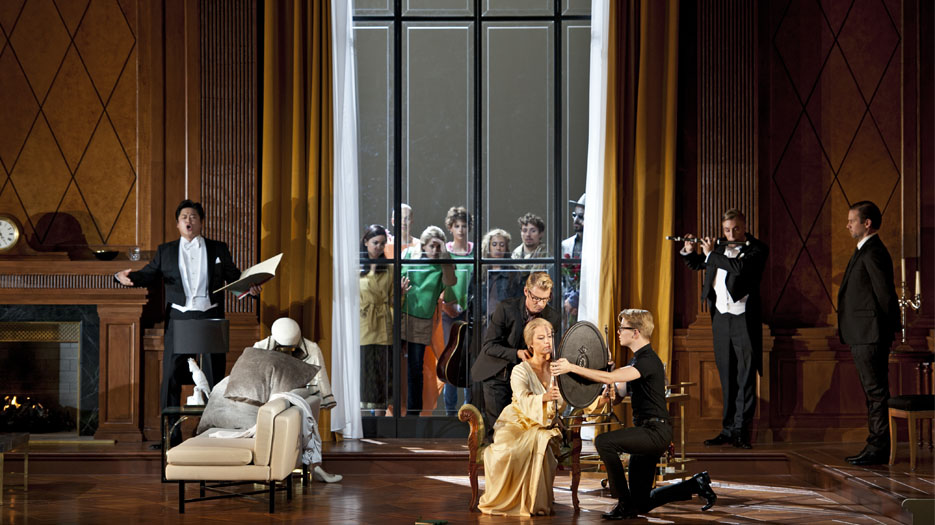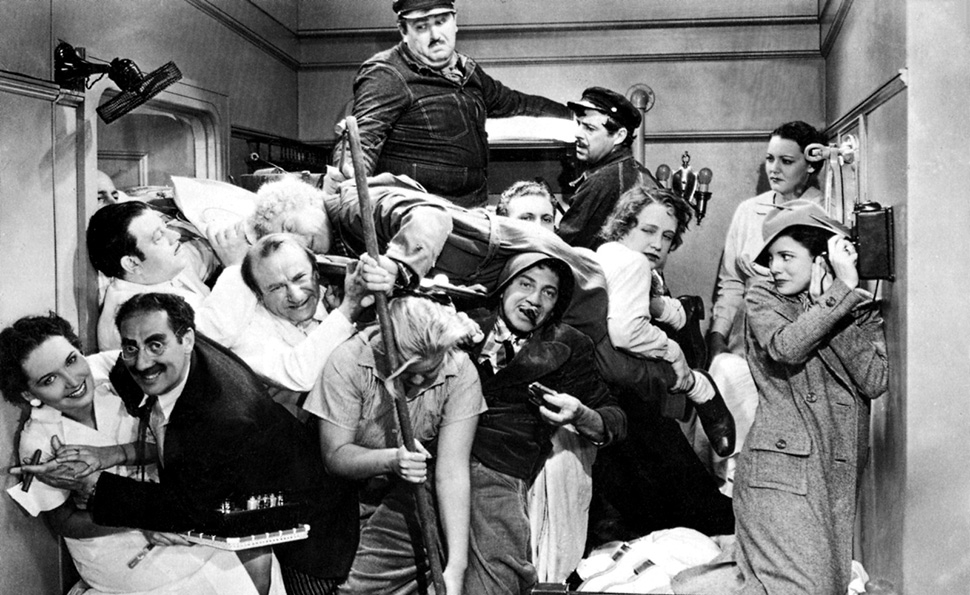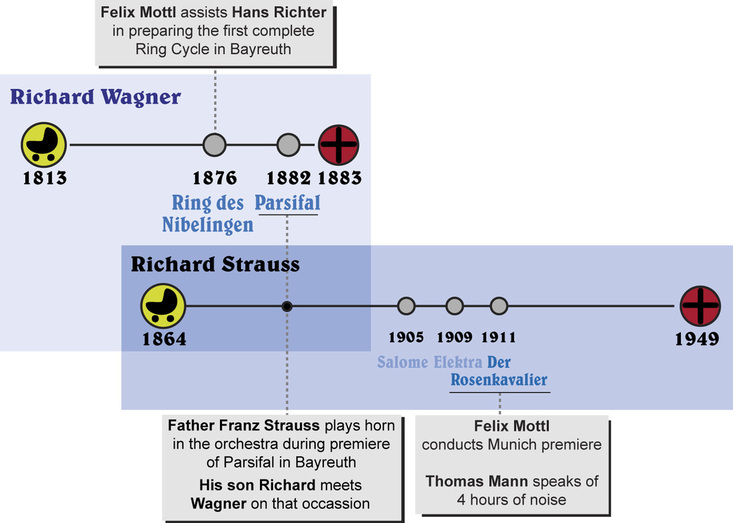|
A young man has an affair with an older woman. To cover up this ménage à deux he dresses himself as a maid. As a consequence she/he (sung by an mezzo-soprano by the way) raises the attention of baron Ochs, some kind of Habsburgian Benny Hill. And then there are still 3.5 hours to go. A German droll story, stretched into Wagnerian length while the German book of humor isn’t that famous for its extensive thickness. In recent years the prospect to find myself in a never ending German farce had shied me away from Der Rosenkavalier from Richard Strauss. Until now. Because the performance with which the Dutch National Opera started their 50th anniversary made - besides a real operafest in which the ears are taking a trip through a musical landscape of impeccable beauty - a successful case against many (mis)conceptions my opera loving mind had gathered throughout the years.That, for instance, main characters in any serious form of music theater better die. Or that key characters should behave morally dubious and, if possible, have Damocles’ sword hanging above their heads. That by any means necessary a happy end should be avoided. One could feel cheated. Before you know you end up in an operette. A genre in which everything after the ouverture better is omitted (don’t get me wrong I like the one from Die Fledermaus). Contrary to its predecessors Salome and Elektra (heavy Biblical and Greek drama) Strauss choose a lighthearted story situated in 18th century Vienna for this one. He called it his ‘Mozart opera’. Heavier than Elektra an opera hardly gets, in music and in drama, so with Der Rosenkavalier Strauss turned his back to modernity that in Elektra was brought to a point of arrival. So I thought. A real operafest in which the ears are taking a trip through a musical landscape of impeccable beauty Yes, we do not enter further into the world of atonality (bye, bye Schönberg) and the lightheardness of the story can be misleading but the music in Der Rosenkavalier is more versatile, refined and stratified than Elektra's. When directed with a great ear for detail, vigour and a great sense for lyricism like Marc Albrecht did in this production of the Dutch National Opera, Der Rosenkavalier is a ride that not one moment fails to take the listener with him, right into its colourful world. I own an old Karajan recording from the fifties. It's considered a benchmark recording and of course I heard some beautiful moments in it but for full appreciation I needed something more before I could call myself a fan of this opera. And this performance, in a splendid regie from Jan Philipp Gloger, was just that. Something more and utterly unbelievable. The more I think about it. The stage was a combination of old and new. I saw the world of ballrooms in Vienna infused with elements of modern life. Things I see when I go out. Like a man who is trying to sell you a rose in a bar. And it worked perfectly. The personenregie was like the best things I've ever seen. The singers were great actors. Exactly as Strauss intended. He was influenced in more than one way by Wagner. Der Rosenkavalier is no number opera, it is composed as one long line so no possibility for the audience to acclaim after each aria. For the better. I know it is tradition in Italian and French opera but applause after an aria serves the ego of the soloist at the expense of the flow. I think of them as commercial breaks and I am kind of allergic for them. Der Rosenkavalier ends in a hotel (or inn) where the whole thing progresses into a Marx Brothers kind of mayhem. And equally as funny. Forget that remark about German humor. This was “A Night At The Opera” to remember. And I can't find words to praise it enough. Perhaps I went I little bit astray with this review for a website that is called “Wagner & Heavy Metal” but music should expand your world, not narrow it. And finding musical satisfaction in (relatively) new territory can be truly liberating. It is the most beautiful thing. So no dark clouds of heavy sound for now. On top of that I'm listening to Arabella while writing this. Who would have thought ...
0 Comments
Leave a Reply. |
TIMELINE
July 2024
|




 RSS Feed
RSS Feed